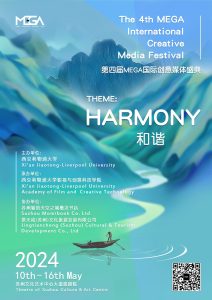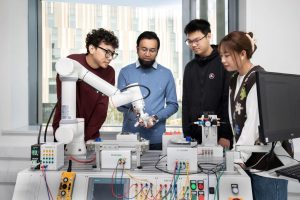December 15, 2017
Year Four students from the Department of Electrical and Electronic Engineering (EEE) at Xi’an Jiaotong-Liverpool University presented their final year projects (FYPs) at a poster session.
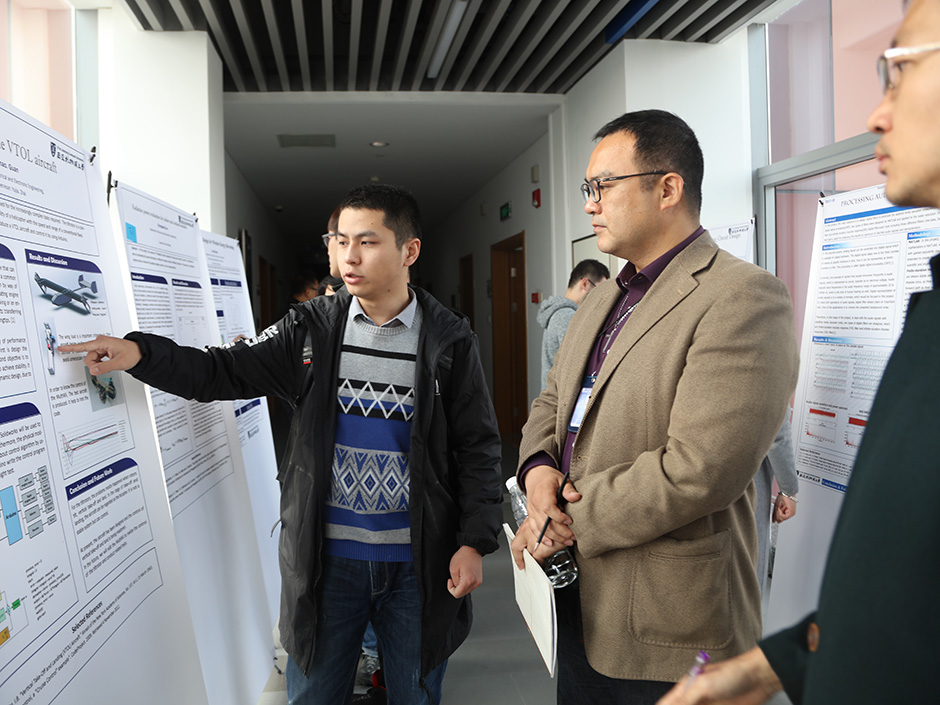
Of the 79 students, who presented their research, one was awarded the Best Poster Prize which was sponsored by The Institute of Engineering and Technology (IET).
Dr Yujia Zhai, final year project coordinator, said that the poster session provided Year 4 students opportunities to put what they have learned for three years into practice and broaden their research horizons.
“During the presentation, students learnt how to communicate with their supervisors and other students. This kind of transferable skills are essential for their career development after graduation,” said Dr Zhai.
“Students can demonstrate their projects before their final formal presentation. They can also clarify the directions of further research through exchange with teachers,” added Professor Kaizhu Huang, head of the Department of Electrical and Electronic Engineering.
Chenhui Wang (pictured blow), who studies BEng Electronic Science and Technology, was awarded the IET Best Poster Prize.
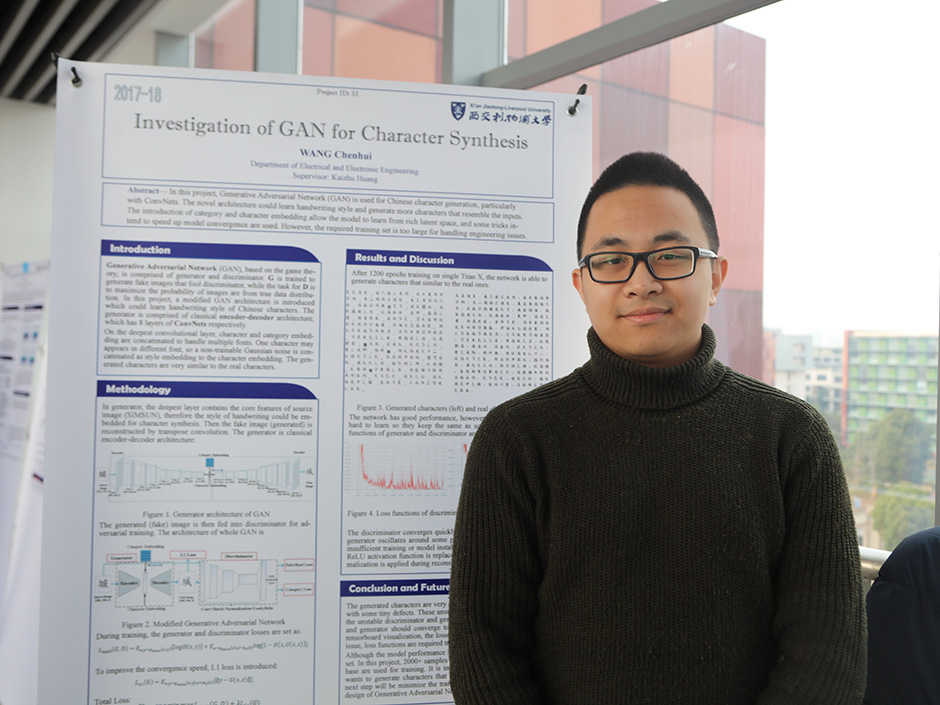
His project, ‘Investigation of GAN for Character Synthesis’, proposed a modified GAN (Generative Adversarial Network) architecture of deep learning for artificial intelligence to produce generated characters that resemble hand writing style Chinese characters.
According to Chenhui, GAN was comprised of generator and discriminator and generator was responsible for producing fake images and fooling the discriminator to output the fake image as true data.
In his modified GAN architecture, the encoder and decoder of the generator both had eight layers of convolutional neural network respectively.
“The layers of encoder extracted the features of the hand-written characters and then the decoder produced the fake image of the characters which were then fed into the discriminator for adversarial training,” Chenhui explained. “After the training, the network was able to generate characters similar to the real ones.”
Dr Anthony Centeno (pictured below right), IET representative of the department, was very interested in Chenhui’s project and saying: “As teachers have different research interests, this is actually quite new to me. Although I’m not familiar with Chenhui’s topic, he explained his work very clearly.”
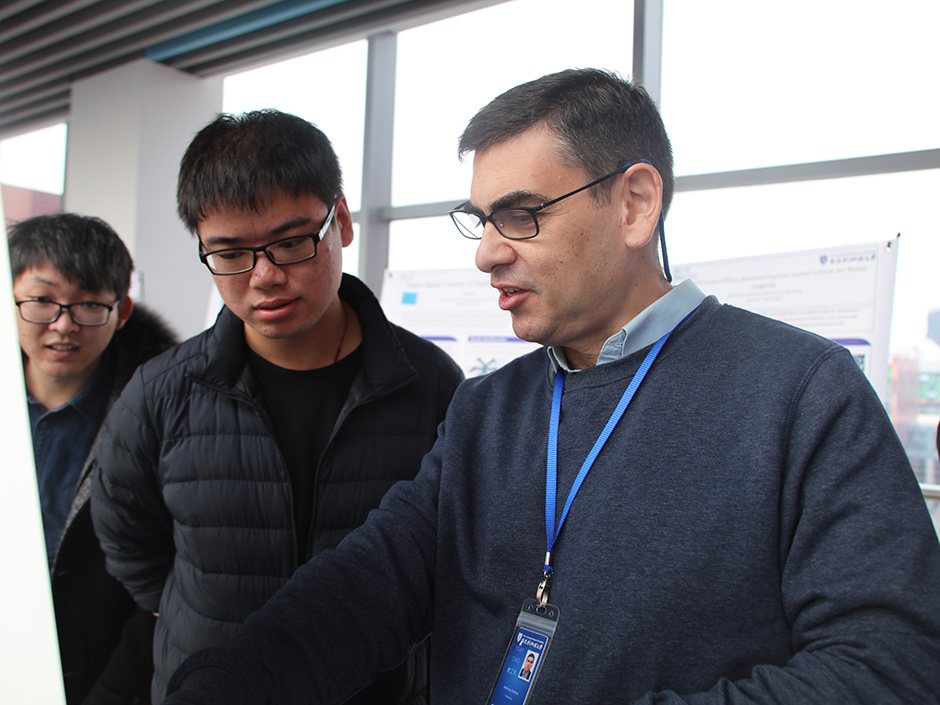
Dr Centeno said that communicating technical information effectively was essential for EEE students in their future careers, as they would often have to explain concepts and ideas to people who were not experts in that area such as: customers, senior management or potential investors.
“This poster session gives the students an opportunity to present and explain their project work to a wider audience,” he added.
Professor Huang also noted that student projects this year were more practical and focused on market demands.
Jiaqi Li (pictured below), who studies BEng Electrical Engineering, provided a more sustainable material for the application of supercapacitors which is environmentally friendly and could be put into real practical use if the further testing and analysis are reasonable.
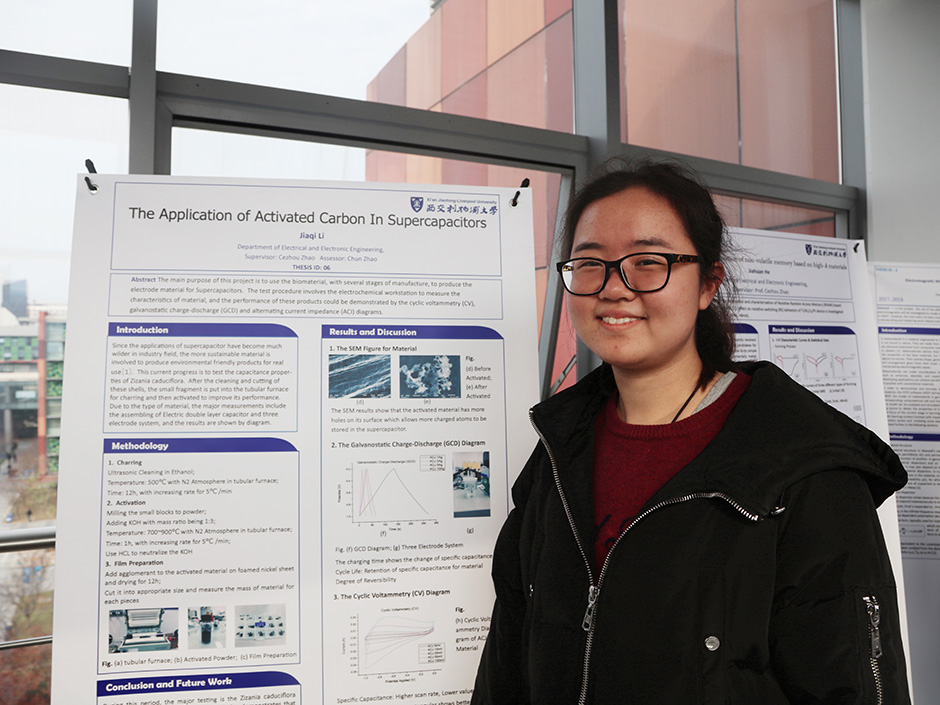
In her project, ‘The Application of Activated Carbon in Supercapacitors’, Jiaqi tested the capacitance properties of Zizania caduciflora. After cleaning and cutting the shells, the small fragment was put into the tubular furnace for charring and then activated to improve its performance.
Based on the scanning electron microscope (SEM) figure, the activated material had more holes on its surface which allows more charged atoms to be stored in the supercapacitor.
Jiaqi commented that, before the project, she studied a lot of previous research and discovered that straw crops performed better in the experiment. “Therefore I chose Zizania caduciflora, which is cheap and easy to obtain and my project shows that using this material is feasible,” added Jiaqi.
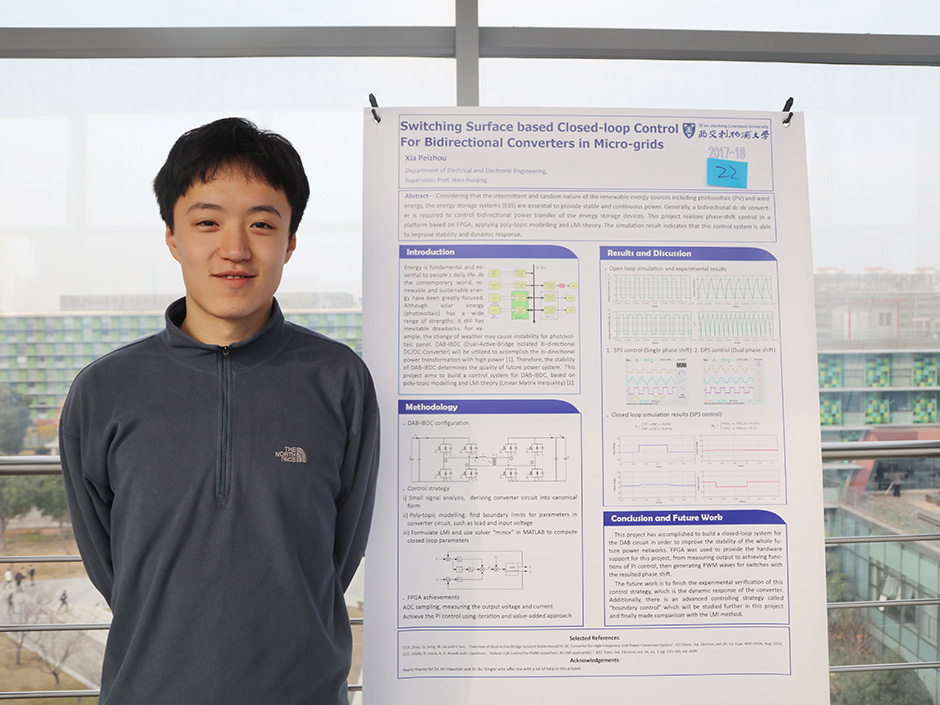
Peizhou Xia (pictured above), who studies BEng Electrical Engineering, also tried to solve practical problems in his project, ‘Switching Surface Based Closed-loop Control for Bidirectional Converts in Micro-grids’.
According to Peizhou, renewable and sustainable energy have been greatly focused in the contemporary world. Although solar energy had a wide range of strengths, it still had inevitable drawbacks, for example, the change of weather may cause instability for photovoltaic panel.
Therefore he wanted to develop a closed-loop system to improve the stability of the whole future solar energy power networks, specifically the power conversion system. It turned out that the control system built in his project stabilised the output voltage even when the input voltage or load was unstable.
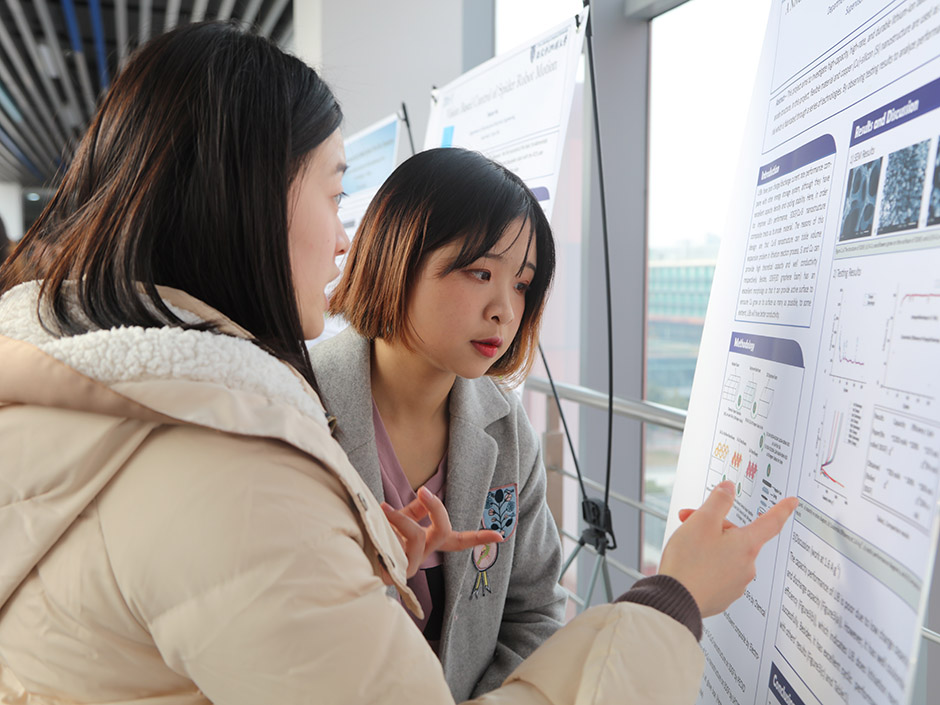
Dr Zhai emphasised that this FYP poster session was a platform for Year Four students to share their academic achievements with both peers and teachers.
He also praised the students saying: “I’m glad to see that students take their projects seriously and some of their results are really meaningful for industry.”
By Qiuchen Hu, edited by Guojuan Wang and Jacqueline Bánki, photos by Liping Tian
December 15, 2017
RELATED NEWS
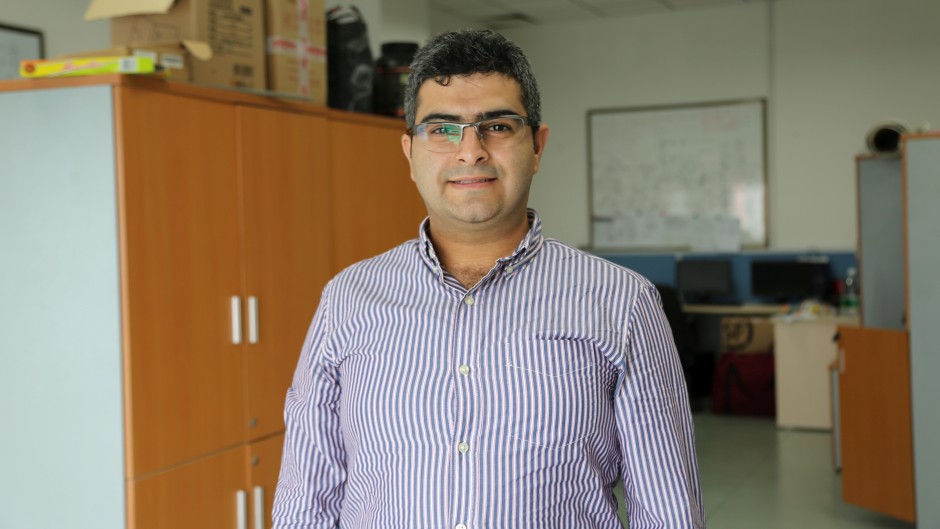
Air-conditioning research could lead to big energy savings
Mehdi Pazhoohesh, a postgraduate student at Xi’an Jiaotong-Liverpool University, has been conducting research into air-conditioning technology that could lea...
Learn more
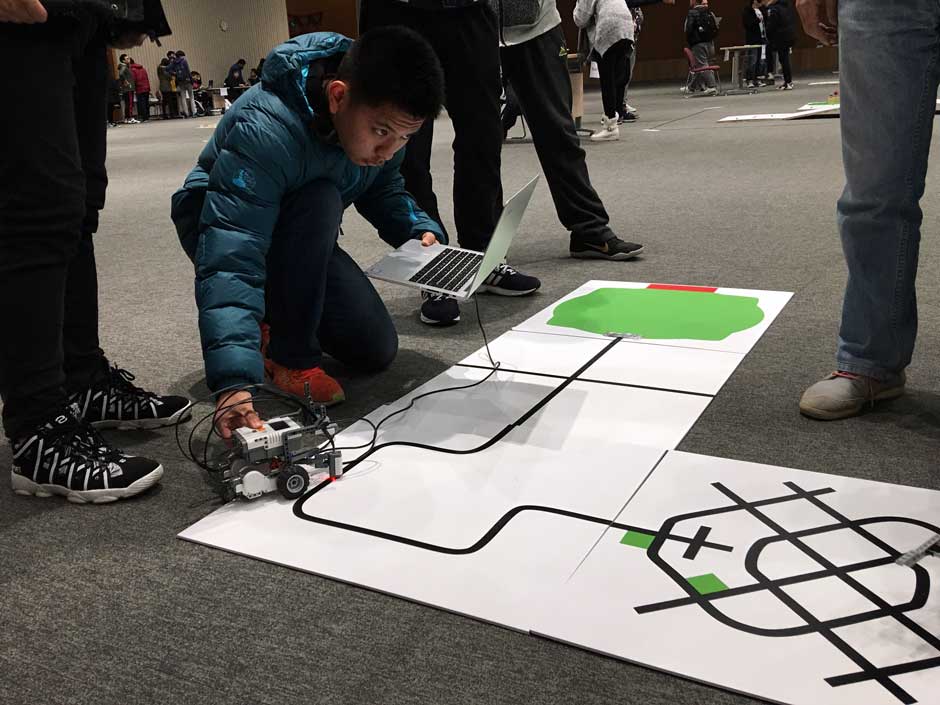
Students showcase their talents to design and programme robots
Nearly 600 Year One students at Xi’an Jiaotong-Liverpool University showcased the robots they had designed and programmed at an annual robot demonstration da...
Learn more
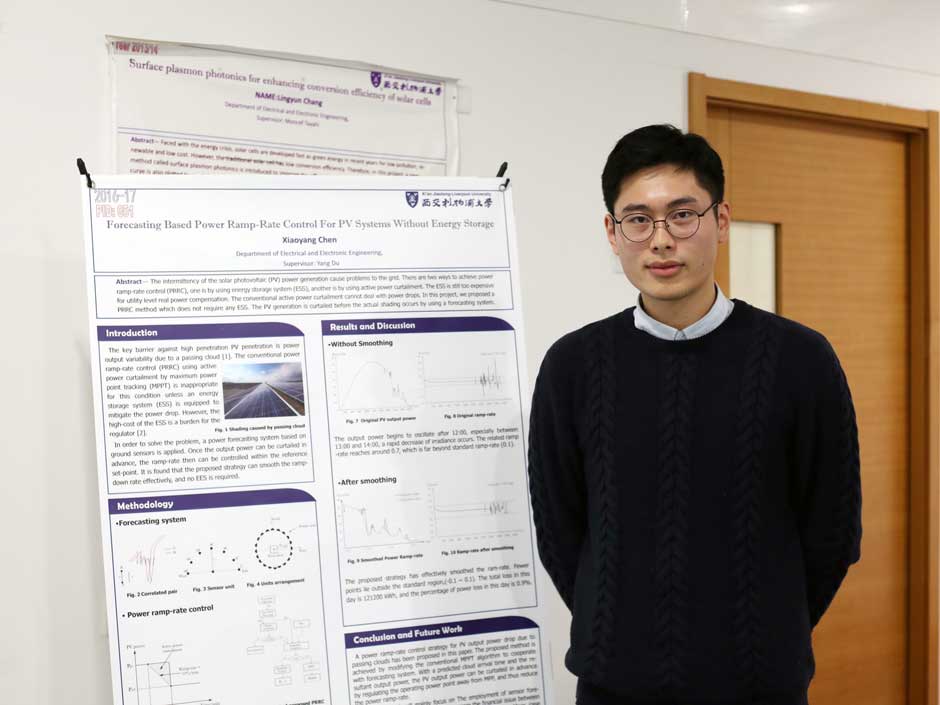
Exciting ideas highlighted at EEE final-year projects poster session
More than 100 Year Four electrical and electronic engineering students presented their final year projects at a poster session at Xi’an Jiaotong-Liverpool Un...
Learn more
